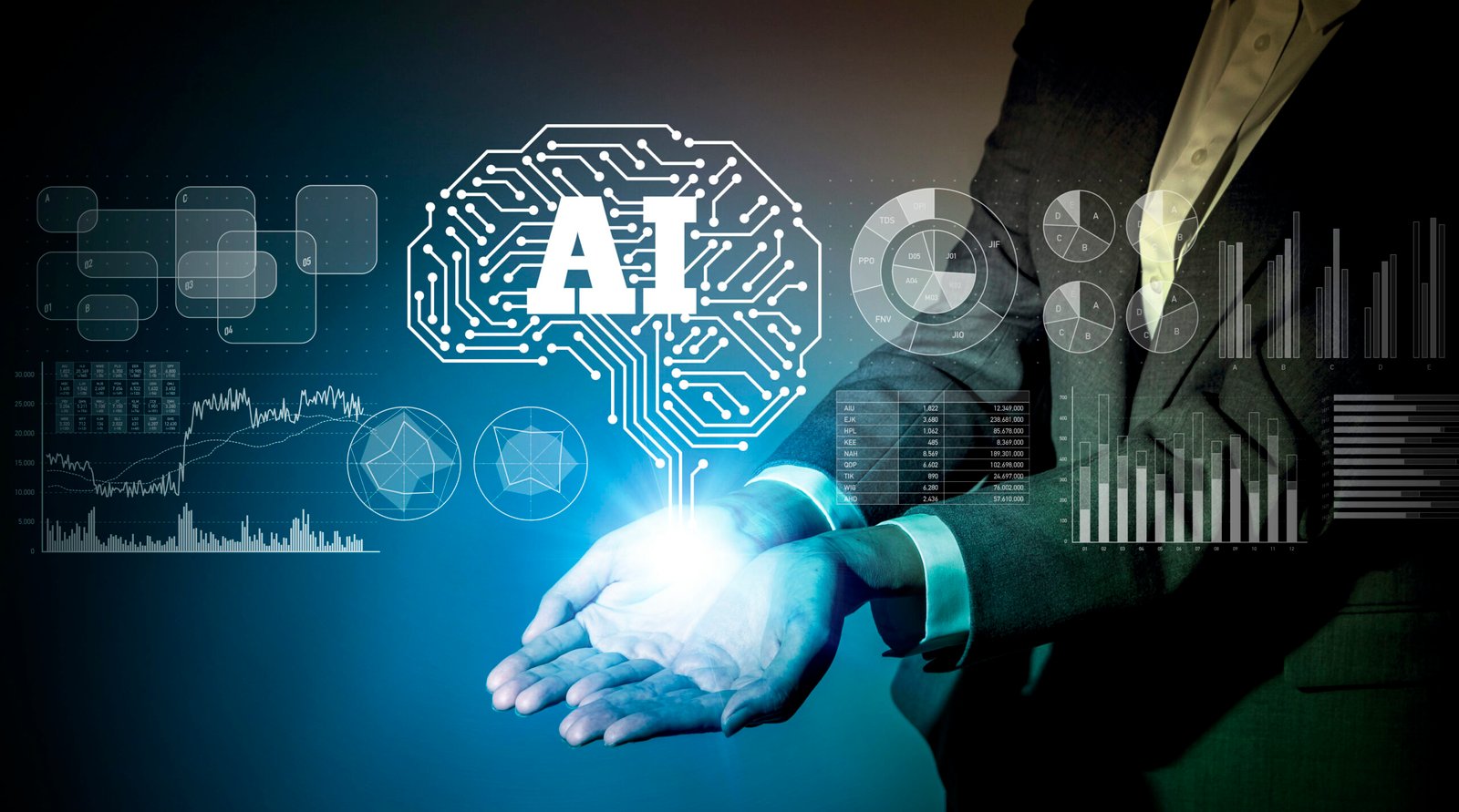It wasn’t until recently, in the history of humanity, that a machine could fly an airliner across the Pacific or prepare a batch of ice cream. These aspects of modern life are brought about by advancements in computer science and mechanics, which enable machines to carry out previously labor-intensive jobs that required human labor.
These days, emerging technologies are pushing the boundaries of machine capabilities. A whole branch of science called artificial intelligence (AI) has produced a class of computer software that simulates human thought processes. AI systems are now capable of performing tasks like data analysis, computer programming, music composition, prose writing, and medical diagnosis thanks to machine learning. They can often complete these jobs fast and without assistance from humans.
Artificial intelligence (AI): what is it?
The simulation of human intelligence by machines, mainly computer systems, is known as artificial intelligence (AI). Artificial intelligence (AI)-powered systems are capable of tasks like data processing, problem solving, and decision making that are often associated with human intelligence. These devices are capable of:
-} Study. AI systems gather vast amounts of data along with usage guidelines.
-} Reason: Artificial intelligence systems employ rules to sift through vast amounts of data and draw conclusions.
-} Adjust yourself. Like a human, an AI program may evaluate its own performance and make necessary improvements to get better results.
1.] Enhanced operational effectiveness
AI systems, such as Zendesk, automate monotonous jobs, saving time and effort in standard procedures like data entry, customer service, inventory management, and data collection. Businesses can get rid of tedious work and redirect resources to more fruitful endeavors by automating repeated processes.
2.] Better judgment
AI systems process massive amounts of data quickly and accurately to extract insightful knowledge that helps businesses make more informed decisions more quickly. This improves forecasting, risk management, and strategic planning skills.
3.] Improved encounters with customers
Artificial intelligence (AI)-driven chatbots and virtual assistants, such as those offered by DeepConverse and Zowie, offer individualized, 24/7 customer care by answering questions and resolving problems instantly. Because an AI robot never requires a break, this can increase customer satisfaction and loyalty while decreasing response times.
4.] Marketing tactics that are optimized
Artificial intelligence (AI) capabilities, such as those found in the Mailchimp platform, may evaluate consumer behavior and preferences to provide more relevant and successful targeted email marketing messages. Artificial intelligence (AI) technologies have the potential to boost conversion rates, enhance ROI, and improve customer engagement.
5.] Accurate upkeep
Through the analysis of sensor data and past performance, AI-enabled predictive analytics helps to optimize resource management by foreseeing equipment breakdowns and maintenance requirements. Businesses may limit downtime, lower maintenance costs, and increase asset lifespan by detecting problems early on.
6.] Optimization of the supply chain
Artificial intelligence (AI) enhances supply chain management through forecasting changes in demand, spotting any bottlenecks in the production or shipping processes, and maximizing inventory levels. AI implementation lowers inventory costs, prevents stockouts, and encourages on-time delivery.
7.] Fraud detection and avoidance
An AI computer program can spot suspicious activity, stop fraud, and recognize trends linked to financial misconduct. These intelligent technologies, developed by companies such as SEON and IBM, can be used by startups and major banks alike to safeguard assets, lower losses, and maintain client trust.
8.] Tailored suggestions for clients
Recommendation engines driven by AI evaluate consumer preferences and behavior to provide tailored product suggestions that promote upselling and cross-selling. This has the potential to raise the average order value during an online purchase. Because the AI technologies direct clients toward things they have expressed interest in purchasing, it can also result in increased customer satisfaction.
9.] Complex data analysis
Artificial intelligence (AI) methods like natural language processing (NLP) and deep learning may extract insightful information from unstructured data sources including text, photos, and videos. By implementing AI technologies, companies can obtain a competitive advantage by analyzing large volumes of data and looking for previously unnoticed patterns, trends, and correlations.
10.] Enhanced HR functions
Art]ificial intelligence (AI) technologies are being used by HR departments to analyze resumes and find the best candidates based on predetermined standards. AI-powered workforce management solutions can improve performance reviews, training, and scheduling in addition to the hiring process. Higher output and happier workers may be the outcome.
11.] Creative creation of products
AI helps with new product testing, simulation, and rapid prototyping in the product development process. By handling monotonous activities, robotic process automation can quicken the innovation cycle and free up product designers to work on more intricate and big-picture projects.
12.] A decrease in human error
Whether the activity is basic and involves data entry or complicated and involves supply chain management and predictive analysis, delegating it to AI software can help minimize human mistake. AI systems have the potential to be more precise than humans when they are correctly programmed. Software developers are currently preparing AI apps to manage critical autonomous systems as a result.
AI is capable of doing things like reviewing medical information and helping physicians make diagnosis. AI is used by autonomous cars to make decisions while driving. AI software will become increasingly prevalent in our daily lives as long as it is thought to be less prone to error than human labor.


